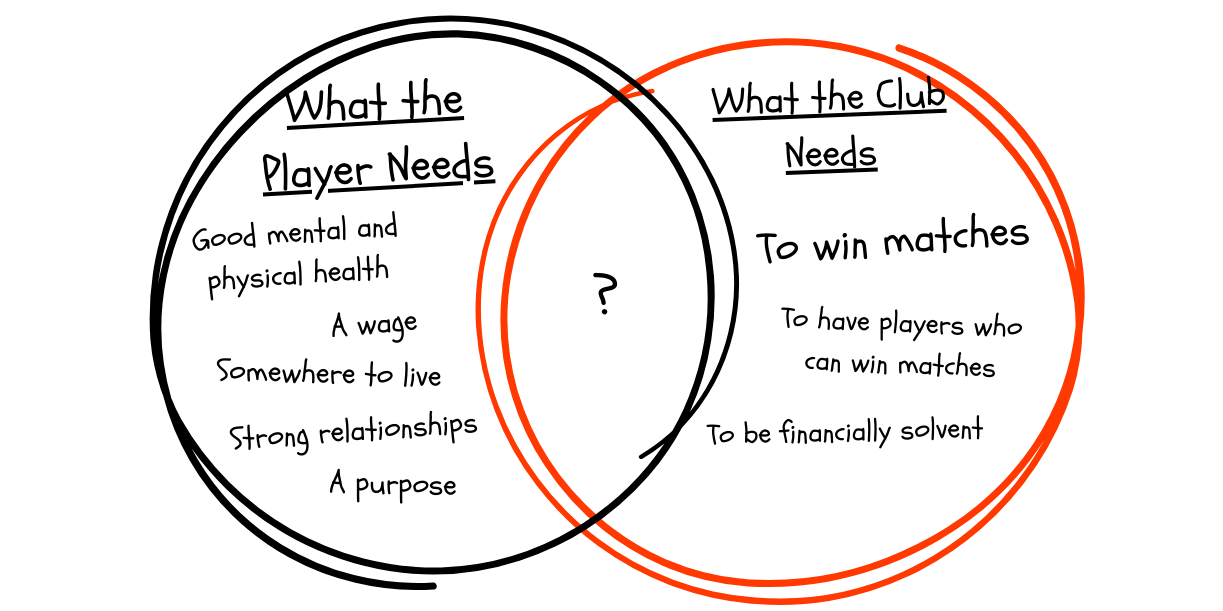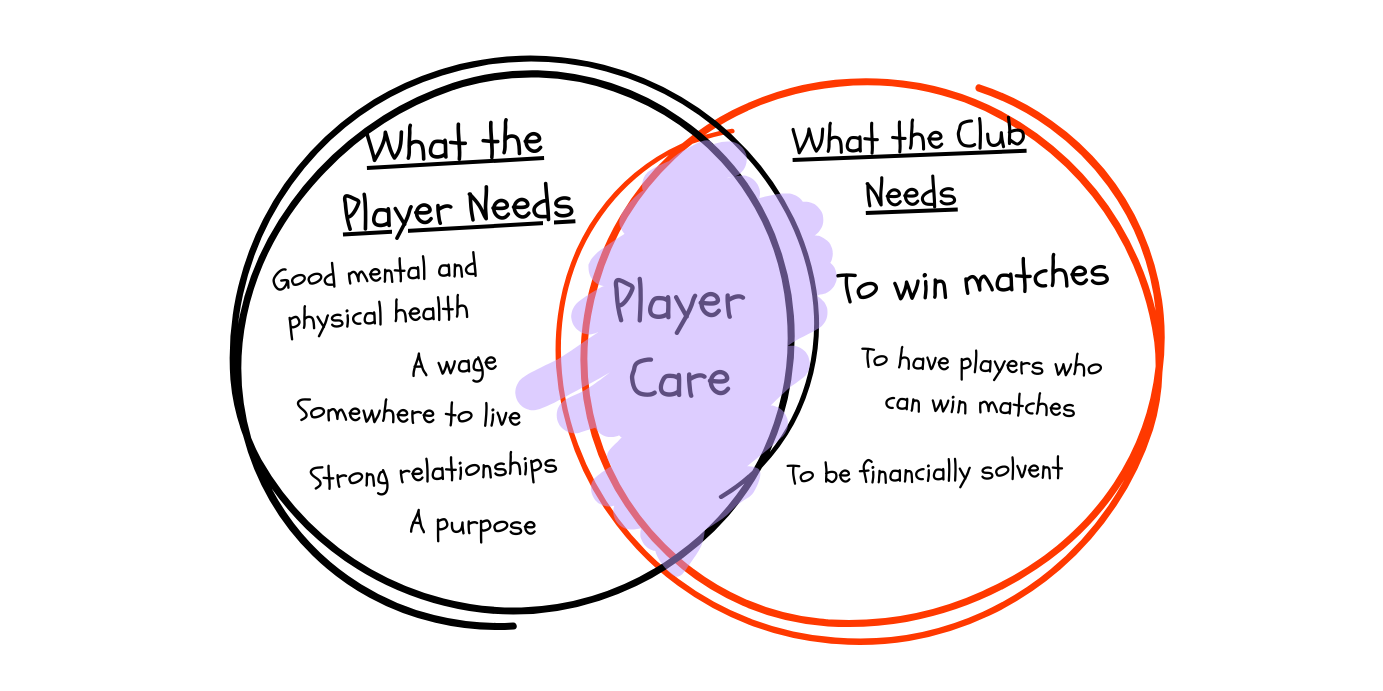It is an uncomfortable truth but I’m afraid to say, professional football and “player care” is, and always has been, something of an oxymoron.
The first thing to do is to think about the needs of a professional football club. Above anything else, a professional football club needs to win football matches. It is as simple as that.
Notwithstanding any other objectives, such as financial stability and fan engagement, for example, these objectives ultimately depend on the club winning games of football. It is the only currency that truly matters. Now think about what that football club needs to win football matches. Well, to win football matches, clubs need to invest in (through buying) or develop (through their academy) players who will be good enough on the field to win football matches. It sounds simple and that is because it is. In short, football clubs need to win matches and, to do that, they buy or develop players to be good footballers. That is their business and if they can’t win matches nothing else happens.
Now turn your attention to the players. What are their needs? Again, it is fairly simple. Players are people and, therefore, they need their physical and mental health, they need shelter in the form of a house, they need some income to live off, they need social relationships with other people and they need a sense of belonging. In that respect, they are no different to other people. Another way to look at this is, if you are a parent or guardian, what do you want for your child? You want them to feel fulfilled, you want them to be happy, you want them to find themselves in loving relationships (be that romantic or friendship), and you want them to earn money and find purpose in their job. Again, the list goes on.
Now that we have the needs of the club and the needs of the players, we can put them into the different sides of the Venn Diagram.

And now we can start to see why professional football clubs are not interested in the welfare of so many of their young players. It is not so much a question of why they should care, but rather why would they care? The fundamental problem with the idea of ‘Player Care’ delivered by clubs is that the need of a professional football club is not the same, in any way, as the basic need of the player. I would go further and suggest a significant amount of research shows that the needs of a club are the opposite of the player. For example, to win football matches, players have to put their physical and mental health on the line every day. To become and maintain a life as a professional football player, players have to sacrifice social relationships.
You might be lucky. You or your child might sit in the middle where the two circles of the Venn diagram cross. Here is where the player is seen as good enough to help the club meet its needs. That is to say, the player is seen as good enough to help the football club win matches. If a player finds themself there, they will find people in a club who want to service their needs. A new contract perhaps, top-level medical care to get you back on the pitch. However, there is a big caveat.
This type of player care will only ever be given if it also suits the needs of the professional football club. If you are not seen as important to winning football matches, forget any thought of extensive player care. As a parent, guardian or player, it is better to forget any notion that the club cares for the player as a person. There will, of course, be people in a club who care for you and these people will want to help you. However, a football club as an organisation won’t. It is wise to remember that a player is only useful to a club if they are helping them with their need to win matches.
There is evidence of this all over. Not least in the research I have undertaken. Token gesture educational courses that are not worth undertaking, coaches who ignore players when they are injured, and confidence-sapping environments built on ‘banter’ and bullying. The list goes on. I saw an advert for a Player well-being manager at a Championship club. The advert said the club were seeking someone, and I quote, “to drive forward our Academy young player wellbeing and care strategy”. It went on…the club were seeking, again I quote, “an outstanding individual to develop the holistic development of our young players”. The wage? £32,000-£34,000 per annum. A multi-million-pound organisation and to look after their number one assets, the players? Answer: About £10,000 less than the average managerial salary in the United Kingdom. Ask yourself, if you truly wanted an ‘outstanding individual’ to ‘drive forward strategy’, would you offer around £10,000 less than the going rate?

This ‘Needs Venn Diagram’ helps to demystify one of the fallacies that exist in professional football. That clubs truly care for their players. If you think that, forget it. I am here to tell you that they don’t. Or, more accurately, football clubs will care for players as long as they can help them fulfil their needs. Remember, players are only useful to clubs if they are helping them achieve their need - to win football matches. This is why any care for the player as a person, their well-being and their welfare sits at the bottom of the ‘to-do’ list of a club.
So what is the solution? This is quite simple as well. Take control of your welfare. Ask yourself, if you or your child got a job in a bank, would you think "That’s great, the bank will take care of my well-being”? No, you wouldn’t. Professional football is an exciting but daunting journey, so take control of that journey. Plan out how you will maintain your well-being, or that of your child. Work with me to help you deliver the best player care there is - player care that is designed by you and for you.





